The rewriting guide for lung cancer diagnosis and treatment, the Shanghai expert won the "Taishan Award"
Author:Medical community Time:2022.08.04
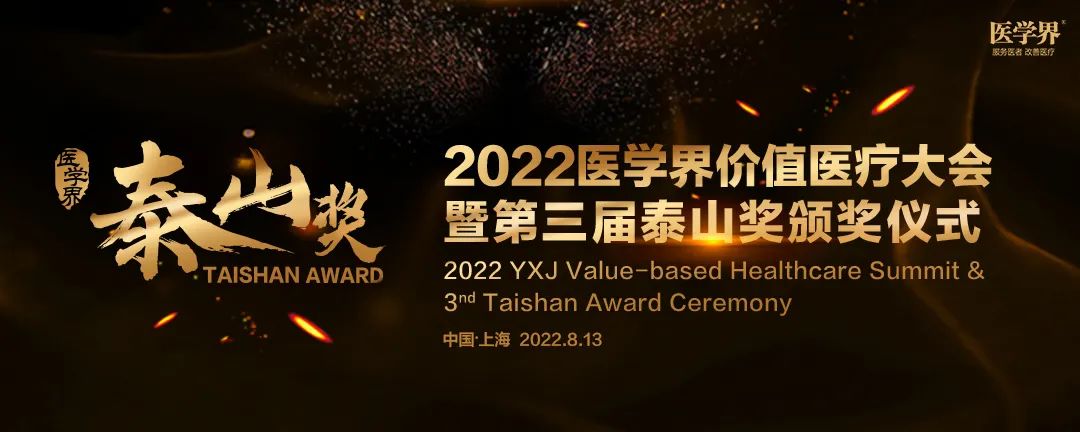
With his own power, he has continuously launched the "China Standard" and "Shanghai Plan" in the field of international oncology.
Written article | Wang Hang
Source | "Medical Community" public account
Everyone in the international thoracic surgery knows that there is a doctor named Chen Haiquan in China.
Published in more than 190 journal papers abroad, 23 research results were included in 13 international guidelines; the American Chest Science Society (AATS) International chest tumor surgery summit organizing committee, known as the "International chest tumor surgery club" He is the first Chinese doctor to be a member of the organizing committee in history, and the only Asian member who participated in the founding.
At the University of Pittsburgh University Medical Center, Zurich Medical Center and other international medical centers and top academic conferences, there are Professor Chen Haiquan's "big inspection houses" and sharing results. Gerald and Elaine Fuster Distinguished LeCTURERer in Thoracic Surgery forum "teaching early lung cancer diagnosis and treatment.
Under his leadership, Fudan Cancer Hospital has become a world -renowned thoracic surgery center, and early lung cancer survival has led more than 10%ahead of international. The "comprehensive minimally invasive treatment system of lung cancer" proposed by it is also profoundly affected by each surgeon.
With a series of pioneering achievements, Professor Chen Haiquan won the "Medical Value Medical Taishan Award 2021 Annual Diagnosis and treatment plan".
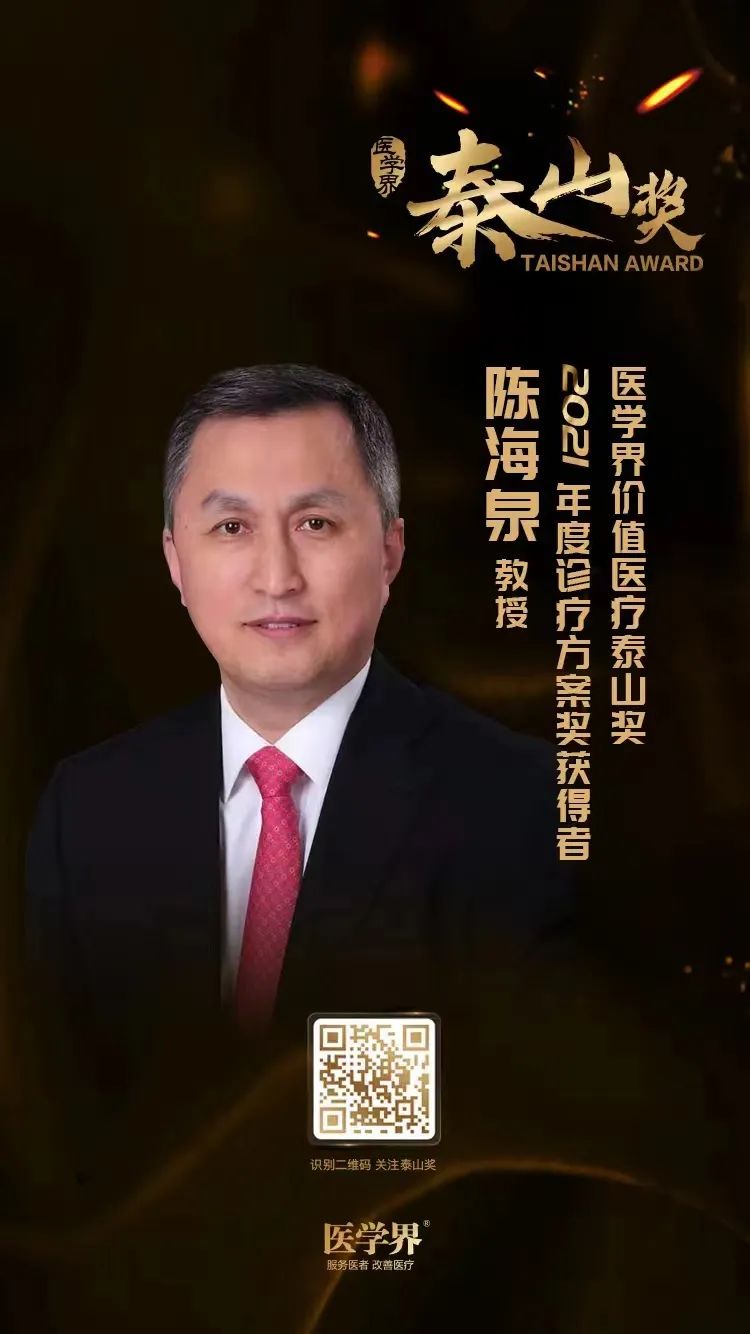
Professor Chen Haiquan (Director of Deep Surgery at the Cancer Hospital Affiliated to Fudan University, Chief Expert of Chief Experts of Disciplinary Disclosure and Treatment Group of chest tumor diagnosis and treatment of chest tumor hospitals affiliated to Fudan University, vice president of the Chinese Medical Association's Chemistry Branch)
From 1.0 to 3.0: Microlysis of lung cancer
Entering the era of precision treatment
For a long time, the "minimally invasive" treatment of "small incision" and "less hole" is the common pursuit of patients and surgeons. Everyone generally feels that the small incision means that the wound is small, which is conducive to patient postoperative recovery of postoperative recovery. Essence
Professor Chen Haiquan said that this was just a minimally invasive 1.0 era of lung cancer. Through studying retrospective literature, he found that although the patient's surgical trauma has been significantly reduced, the prognosis of thoracoscopic surgery on early patients has not improved significantly.
In his opinion, the advantage of minimally invasive treatment is to reduce surgical damage while achieving better treatment results, but the "surgical trauma" in the 1.0 era is limited to "visible wound trauma".
In the era of minimally invasive lung cancer 2.0, while experts were pursuing the minimum visible trauma, they began to retain the patient's lung function to the greatest extent and reduce the damage to the organ. This means that on the basis of small incision and small holes, the surgical scope must be precisely defined, reducing the damage of the surgical organs, and is committed to minimizing the damage inside the chest cavity.
After research on the lung cancer surgery system under the 2.0 era, Professor Chen Haiquan's team passed the pathological judgment of rapid frosting during the operation. Early lung cancer can only achieve the treatment goals without removal of lung leaves; Gonad cancer still needs to do standard pulmonary lobe removal and lymph nodes.
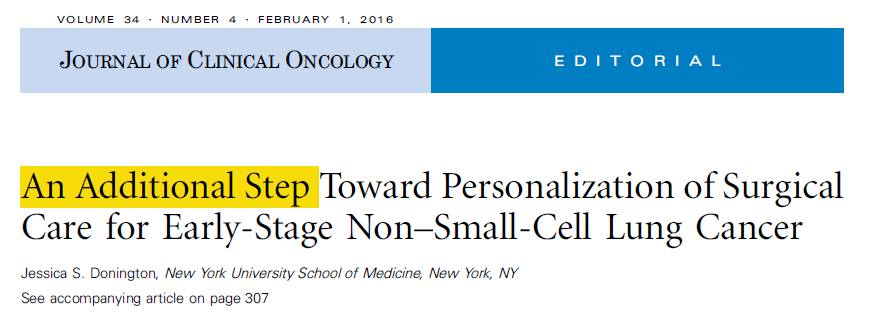
"The accuracy of the pathological diagnosis can reach 96.5%, which provides a precise basis for ensuring the effective resection of the tumor and avoiding unnecessary damage to the organs." Professor Chen Haiquan pointed out that minimally invasive surgery should be a systematic project. Except for surgery, except for surgery To reduce the damage of the organs, it is also necessary to selectively clean the lymph nodes to keep the normal immunohistor as much as possible to reduce systemic damage.
Based on nearly 8,000 clinical data, Professor Chen Haiquan proposed that not only should we consider wound trauma, but "organ damage" and the impact on the system system are equally crucial. At the AATS FOCUS conference at the 5th American Cloth Surgery Association held in 2016, he accurately described and defined the concept of "comprehensive minimally invasive treatment 3.0" for lung cancer for the first time:
Comprehensive minimally invasiveness should be a kind of laparoscopic technology, participating in multi -disciplinary participation, selecting suitable surgery, appropriate incisions for patients in the treatment, retaining normal lung tissue and lymph nodes, and completing surgery in the short period of time. Balance incision, organs and system damage.
The minimally invasive treatment of lung cancer in the eyes of Professor Chen Haiquan is an individualized therapy based on the premise of comprehensive diagnosis and treatment. It includes multiple disciplines, from physiological to psychology, from family to society, with the connotation of precision medicine and value medical care.
"Taking the patients with" dual lung multi -hair nodules' as an example, according to traditional surgical therapy, doctors will remove large -area lung tissue, which will cause the patient's quality of life damage."
The research of Professor Chen Haiquan's team reminded that clinical practice should avoid excessive diagnosis and treatment, and then consider surgery or follow-up plan after balanced the benefits of patients. "Doctors should choose the appropriate surgical and appropriate incision for patients to keep the normal lung tissue, lung function and lymph nodes as much as possible, so that the patient can obtain the best effect and the minimum damage."
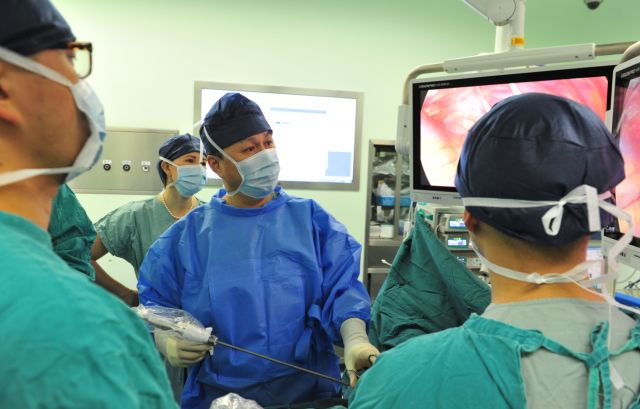
Professor Chen Haiquan performs surgery for the patient
Reward the guidelines for lung cancer diagnosis and treatment
For a long time, the diagnosis and treatment specifications and guidelines formulated by Western developed countries have "monopolized" the field of tumor diagnosis and treatment. However, due to factors such as disease spectrum and genetic factors, the diagnosis and treatment standards of western countries are not fully applied to Chinese patients.
At the Cancer Hospital of Fudan University, many oncology studies based on the characteristics of Chinese people have been successfully carried out. Professor Chen Haiquan's team has continuously launched the "China Standard" and "Shanghai Plan" in the field of international oncology diagnosis and treatment. In 2017, the concept of "comprehensive minimally invasive treatment of lung cancer" was published as an authoritative academic journal "Surgery Yearbook", which is known as a surgeon, which has attracted great attention from the international chest and heart surgery.
The international medical community generally believes that the system provides a new direction for reducing the research of early lung cancer patients' surgical trauma, and it also provides important concepts and practical guidance for countries around the world to carry out minimally invasive treatment of lung cancer in the future.
In the same year, this research results were included in the Guidelines for diagnosis and treatment of lung cancer in the European Tumor Internal Science (ESMO), and used the concept of pathological guidance in the surgery and the "Shanghai Standard" as a global clinical practice of lung cancer.
How much can the lung lobe be reserved and reserved when removing the tumor? There is no clear basis in clinical practice. After research, Professor Chen Haiquan's team proposed:
During the operation, the tumor sample is sent to the pathological test. If it is benign, there is no need to continue to do pulmonary lobe resection; if it is in situ cancer and micro -infiltrate cancer, only local resection and lymphadenopathy are performed. Cancer can operate according to the traditional surgical method. The accuracy of frozen and postoperative ultimate pathological diagnosis reached 96%.
This research topic was published in the magazine of "Clinical Oncology" in 2016 and was known as an important progress in the treatment of early lung cancer in surgery. In 2017, it was introduced to the European Cancer Internal Science Association (ESMO) early lung cancer diagnosis and treatment guidelines.
In more than 190 journal papers, 23 research results were included in 13 international lung cancer diagnosis and treatment guidelines. Professor Chen Haiquan team in lung cancer screening, grinding glass -like diagnosis and treatment, frozen pathological guidance subtraction, selective lymph nodes, and minimally invasive lung cancer were Surgery and other aspects have achieved disruptive research results, and many clinical problems have been solved.
CT discovered lung GGO treatment process (Fudan standard)
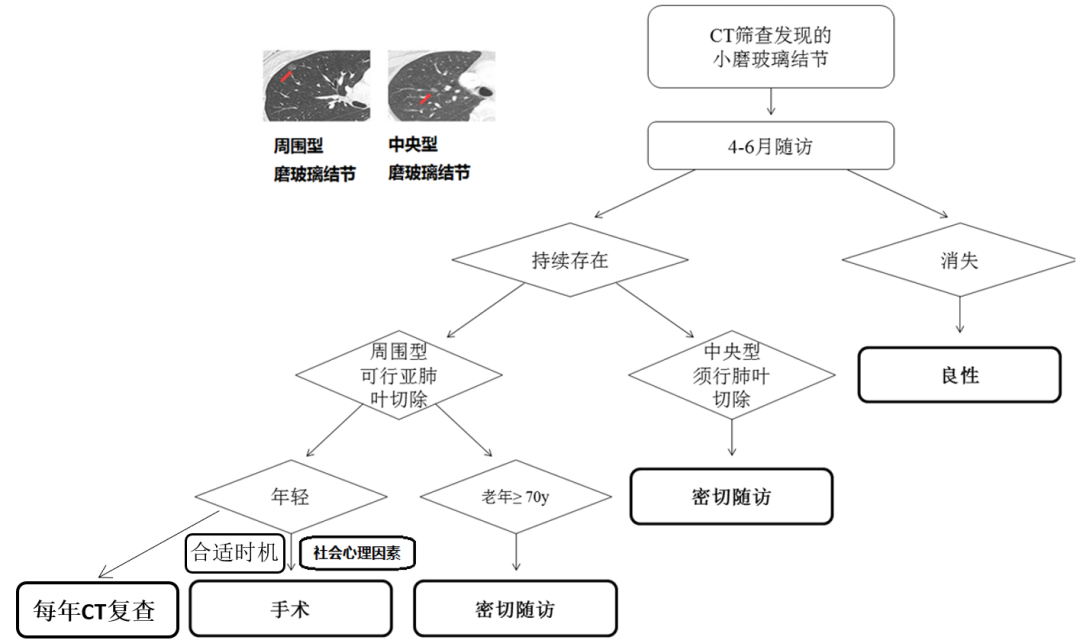
From the perspective of the outside world, Professor Chen Haiquan has achieved extremely high academic achievements, but he said that he was "still learning."
With better treatment effects and the improvement of the quality of life of patients, in recent years, he put forward a new concept- "Early Early Influential Version 3.0" When the progress period is opened, inert tumors cannot be treated as radical tumors. "Choosing the right time and what kind of surgery is the key."
Professor Chen Haiquan also has his own standards for patients who need surgery and the timing of surgery. "When formulating a surgical plan for patients, in addition to first considering the condition, he must also consider his age, life planning, career planning, etc., and fully consider patient considerations to choose a best time together."
Due to a series of pioneering achievements, Professor Chen Haiquan was invited to speak and awarded the title by many international authoritative organizations, including AATS members, members of member committees, members of the Education Commission, member of the Standard Committee of Clinical Practice Clinical Practice, and international directors of the American Chemical Surgee Association (STS). , Member of the European Chest Surgee Association (ESTS), director of the Asian Chest, Cardiovascular Vascular Surgery (ASCVTS).
Professor Chen Haiquan was invited
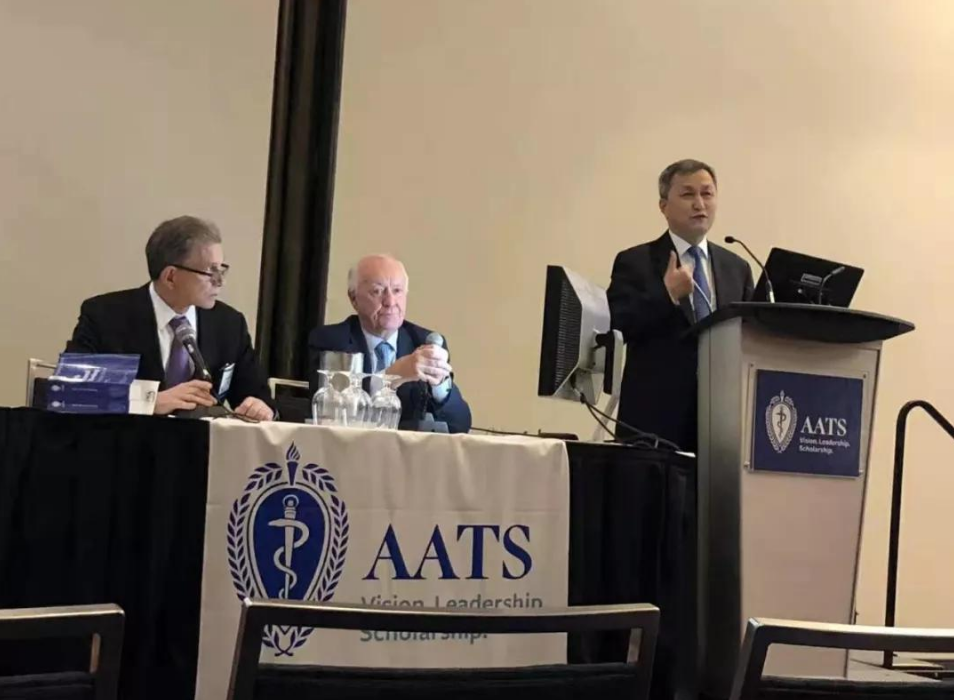
Sending a special lecture on the Annual Meeting of the Department of Deep Surgery (AATS)
He has also been invited to conduct "Grand Round" at the University of Pittsburgh Medical Center, Harvard University Massachusetts, MIT, and Zurich University, Switzerland. Share the original research results from the team.
Professor Chen Haiquan was invited to Ruwin, Belgium
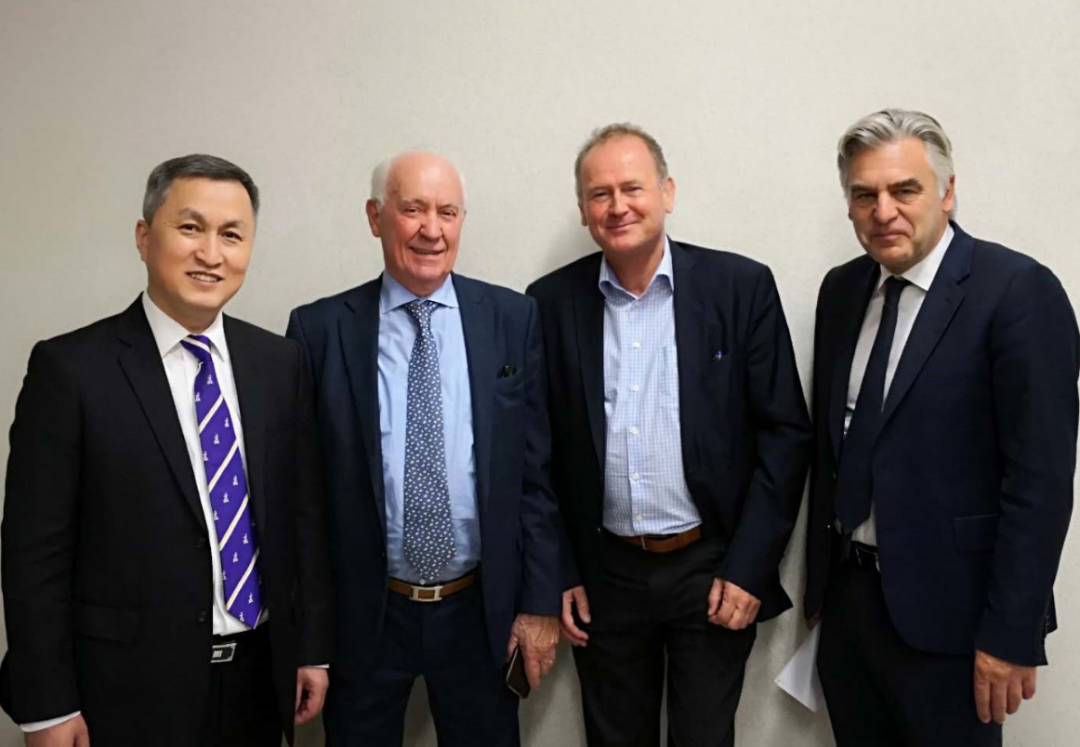
College Medical Center Lecture
In 2021, he became the first Chinese doctors in mainland China, a Chinese doctor who was invited to give a speech at the "Schuster Distinguished Lectureship" speech at the Bryan Hospital of Harvard University. The honor wall of the Harvard University Blaine Hospital.
"Entering the operating room, I am doing scientific research"
There are more than 6,000 cases of lung cancer surgery per year at the Department of Deepline Hospital affiliated to Fudan University, and the annual outpatient volume exceeds 50,000.
The operation was done a lot, but Professor Chen Haiquan was dismissive of a large number of quantities. He said to the "medical community": "I have always emphasized the results, the patient's survival should be good, and the accuracy of lung cancer surgery is high."
Do not pursue laparoscopic rates, nor does it pursue the number of surgery. Whether it is a clinician or the director of the department, it is oriented to solve clinical problems. The improvement of survival time and quality of life has always been the goal of Professor Chen Haiquan.
The data of his thoracic surgery room shows that the five -year survival rate of patients with phase IA patients in the IA period is as high as 93.6%, achieving healing effects; IB, IIA, IIB, and IIIA patients survive in five years, 84.1%, 77.5%, 74%, and 45.8%. , Far ahead of the international level.
Professor Chen Haiquan during the operation
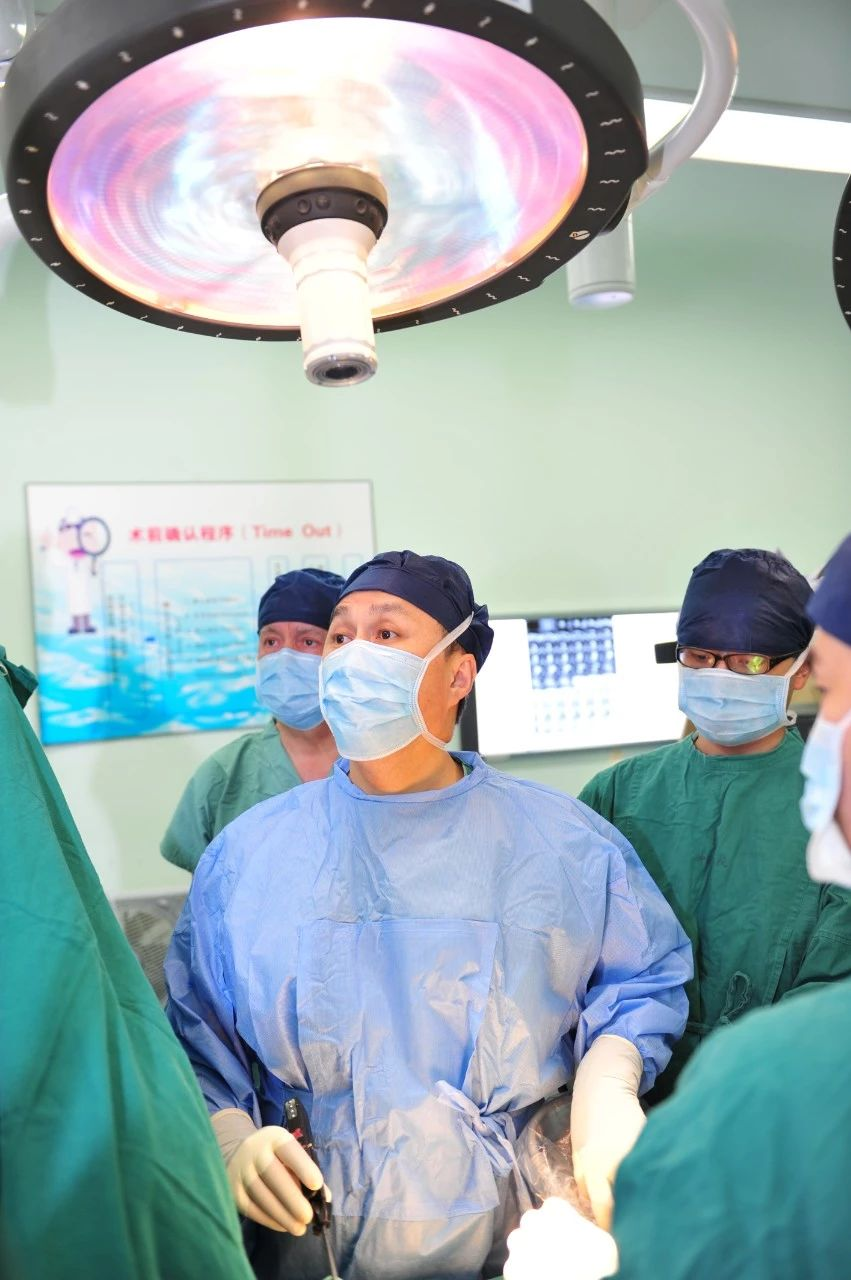
The study of esophageal cancer is another problem of research on Professor Chen Haiquan. The number of Chinese esophageal cancer accounts for about 50%of the world's, and esophageal surgery is also one of the largest trauma and the highest risk surgery.
In order to optimize the diagnosis and treatment of esophageal cancer and improve the quality of survival of patients, Professor Chen Haiquan has carried out a series of forward -looking and randomly control clinical research on the "route" and "lymph nodes cleaning range" in esophageal cancer surgery. Sexual results, surgical schemes have won longer survival for more esophageal cancer patients. With this effort, the 5 -year survival rate of patients with esophageal cancer surgery in the department was as high as 63%, of which the 5 -year survival rate of patients without lymph nodes reached 73%, and the data was much higher than the forefront of domestic and foreign.
Chen Haiquan attributed the results to the clinical system and thinking of "clinical issues -driven and result -oriented". In his opinion, surgeon "entered the operating room and was doing scientific research."
"All of us are clinically clinically. All treatment is to make patients live longer and better. Patients live longer and the quality of life is high. You will find that your article is also available. Therefore, the 5 -year survival rate of lung cancer and esophageal cancer is in a leading position in the world. "
Professor Chen Haiquan introduced that in order to achieve the goal of "accurate installment and standardization of treatment", the department had to discuss twice of multiple disciplines and difficult cases every week, and the monthly medical quality seminar has never been interrupted since June 2008. "This is not only the summary of our daily work and supervision, but also the process of scientific research. Only by organizing these data solidly can we get high -quality data."
Professor Chen Haiquan answers the patient's doubt for the patient
For nearly 40 years of medical treatment, tens of thousands of operations have been performed. In addition to fixed 20 or thirty operations every week, there are a lot of work, conferences, teaching, and scientific research. After "slow", in his words, he is "enjoying the process from design to solving problems."
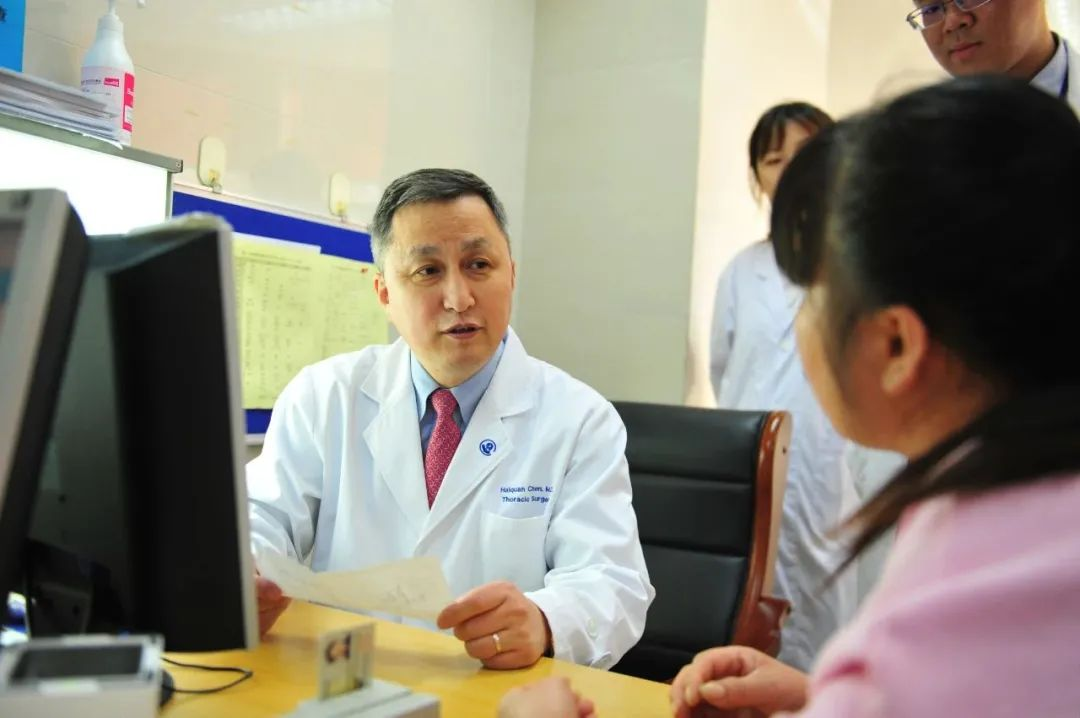
August 13, 2022
The 3rd "Taishan Award" awards event
Will be held in Shanghai
stay tuned!
Source: Medical Community
Responsible editor: Zheng Huaju
School pair: Zang Hengjia
Hot text recommendation
- END -
Jiangsu Xinghua: Lotus Lake Corlus Currency Flower Flowers and Flowers

In the summer season, the temperature rose all the way. In the Qianhe Village of S...
This event will be opened!Just in Rizhao!

In the midsummer, everything is parallel;The vitality sun will be opened.From July...